
|
|||
|
|||
| Home |
| Gallery |
| Culture/ Technology |
| Fiction |
| Music |
| Poetry |
| Theater |
| What's New |
| About/Contact |
| Archive |
|
More to southern rock than Skynyrd Published September 2005 "I'm a Muswell hillbilly boy
What the Kinks' Ray Davies seemed to recognize was that '60s country-rock groups such as Creedence, the Band, the Byrds and the Flying Burrito Brothers, widely lauded in their time as groundbreaking artists, were simply the latest generation of Yankees striking a hillbilly pose, no matter how great their music (and much of it was, in fact, wonderful by any barometer). Subsequently, right on the heels of all this contrived shit-kicker-chic, the real-live South rose again. Jan-yew-wine plaque-toothed, goat-ropin,' chicken-fuckin' hayseed-rockers became all the rage; it was revenge-of-the-rednecks time. In the hands of groups like the Allman Brothers, Marshall Tucker and Charlie Daniels Bands, sagas of southern life were related first-hand rather than strained through the hyperbolized lenses of outsiders.
The southern rock movement of the '70s was sparsely populated, fleeting but fertile, yet managed to produce some of the finest, fiercest, most eclectic rock & roll ever recorded, drawing from every classic American music form extant, all of which, of course, were southern-born. Much of this great southern rock lies forlornly forgotten, woefully dismissed or even unduly derided 30 years removed from its popular heyday. I blame "Freebird."
Meanwhile, it seems that a counterfeit edition of "The Marshall Tucker Band," a group whose key players also lie at rest, continues to tour. The very notion of this appalls to the marrow, as I view the continued usage of the name to be grossly disrespectful of the band's legacy, not to mention the fact that sole original member Doug Gray has become the living embodiment of every negative modern stereotype that miscasts all southern rock once represented. Rather than allowing the proud cretins like Gray and born-again-Fascist Daniels to continue dragging southern rock through the mud, let's examine the vast contributions, universally ugly fates and curiously unexamined contemporary influence of rock & roll's original Wild Bunch: The Allman Brothers Band
The Horror: Duane and Berry died in eerily similar motorcycle wrecks in '71 and '72, respectively. A smack-addled Gregg briefly married Cher, becoming a subject of well-deserved public ridicule. Oakley replacement Lamar Williams died in 1983, by which point the group had already lapsed into humiliating indifference and irrelevance. Though they managed – largely unnoticed and against all conceivable odds – to regain near-peak power by the '90s, shit continued to hit the fan: Allen Woody died in 2000, the latest in a series of Spinal-Tap-esque exploding ABB bassists. Meanwhile, self-righteous former junkie Gregg publicly accused Betts of degenerate, disruptive alcoholism; the two battled like schoolgirls in a mud puddle, culminating in Betts' termination – by FAX, no less – in 2001, following 32 years of noble service. Today: Many fans consider the current Brothers, featuring guitarists Warren Haynes and Derek Trucks (nephew of drummer Butch), the equal of the Duane/Dickey Allman Brothers Version 1.0, creating powerful, extrapolating music to inspire an entire new generation of fervent disciples. With an ABB-patterned unit of his own, a post-excommunication Betts has redeemed himself nearly as astonishingly as his former "Brothers." The Marshall Tucker Band
The Horror: Bassist Tommy Caldwell was killed in a 1980 car crash; brother Toy walked away soon after; MTB disbanded in 1983. Gray and Eubanks later assembled a bogus and inferior MTB, which has endured in one form or another to the present day, dragging the group's legacy through the mire. The brilliant Toy Caldwell, meanwhile, passed away shortly after the release of his lone solo album; this was, after all, the southern rock thing to do. Today: The shameless douchebag Gray obtained national news coverage during the Toby Keith vs. Dixie Chicks war a couple years ago as a clearly desperate Chicks-basher, clinging for dear life to Toby's coattails. Sans the fashionable fascist-posture, Gray would certainly never have warranted television exposure, even on his hometown local news had he graciously croaked in Toy's stead. The Charlie Daniels Band
The Horror: At the dawn of the Reagan era, Good Time Charlie determined it would be expedient to pull a political 180, and hence became an esteemed spokesman for just the sort of murderous peckerwood shitheads he'd sung about chasing him through the backwoods only a few years prior. Retarded jingoism, violent gay-bashing, unclever Arab-baiting; Charlie's material became so extreme as to make '80s former-KKK politico David Duke blush in mortification. Record sales, of course, soared to unimaginable heights; there's always a bull market for hate. Today: Politically, Daniels remains somewhere to the right of Kim Jong Il, but the hits ceased long ago. Though I'm loath to admit it, Daniels' music is still magnificent if you don't listen to the lyrics. However, lest one suppose all southern rock survivors have collectively donned swastika armbands, Betts recently said the following to me of the unsavory phenomenon: "Charlie is frightening, and I didn't even know Doug Gray had gotten involved in that stuff, but they don't represent all us players from down south. I enjoy playing with 'em, but let's just leave it at that. Bob Dylan can take care of the political stuff." Bless ya Dickey! Next shot's on me, dude! Elvin Bishop
The Horror: A forgotten figure by the '80s, Bishop eventually resurfaced on anal blues purist label Alligator Records, which repressed all his wonderful, idiosyncratic inclinations, apparently determined to re-fashion him as the sort of run-of-the-mill white bluesguy they've become noted for hosting. Five years ago, Bishop's daughter and ex-wife were brutally murdered by cult leader/serial killer Glenn Helzer. Today: Bishop hasn't recorded since the murders, but still tours occasionally. Love ya, El – be well. While the above comprise southern rock's major figures, others are worth referencing as well: Grinderswitch was an undeservedly obscure, blues-heavy group; the best of the second-string lot. Failing to avoid the southern rock curse, bassist (and Allmans roadie) Joe Dan Petty died in a 2000 place crash. The Outlaws' 1975 debut album featured jaw-dropping guitar stunts that sounded like bluegrass and metal guzzling a bottle of Old No. 7 together in Hell. Unfortunately, all subsequent Outlaws' albums were thoroughly useless.
Wet Willie was a fine, soul/R&B-based group, but frontman Jimmy Hall's Mick Jagger pretensions were annoying. The group managed one hit with 1974's "Keep On Smilin.'" Mentioned for completion's sake alone are Molly Hatchet, .38 Special, Black Oak Arkansas and the Winters Brothers Band (unrelated to Johnny and Edgar), which collectively sucked harder than Monica on meth. The legacy of southern rock endures to this day, albeit largely uncredited. While the Grateful Dead seem to serve as official avatars of the modern jam band scene, most contemporary jam bands actually owe a larger debt to the greasier, bluesier and tighter ABB, forever godfathers of the sphere they fashioned. Obvious modern devotees include Gov't Mule and the Derek Trucks Band (both featuring current ABB members); Robert Randolph & the Family Band (think ABB-meets-P-Funk); North Mississippi Allstars (ABB-meets-the-Ramones); Blues Traveler; Widespread Panic, and even such non-jam-band kindred souls as White Stripes and Black Keys (tell me Jack White hasn't worshipped at Duane's altar and I'll tell you grits ain't grocery, eggs ain't poultry and Mona Lisa was a man). Interested in the groups above but never heard the old-timers? Check out the essential releases listed below and I guarantee you'll be hooked: Buy these immediately!The Allman Brothers Band — "The Fillmore Concerts"
|
Copyright ©
Reprinted by permission of author, who retains all copyright and control.

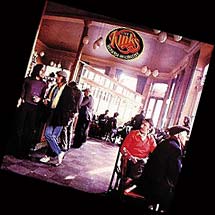 The Kinks recorded
The Kinks recorded 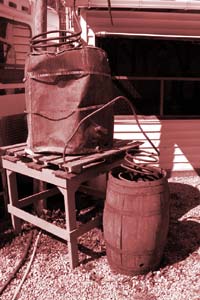 The initial stance of the southern rockers was very counterculture, a clear rejection of old-time, deep South values. The Allmans' music was targeted directly at the same acid-gobbling, anarchist-minded freaks who embraced the Grateful Dead; self-proclaimed "Long Haired Country Boy" Charlie Daniels' first hit, "Uneasy Rider," found him on the run from hippie-lynching rednecks in the Mississippi backwoods. If southern rockers embraced the great music of their region and played it with an inborn authenticity that most northern groups could only parrot, their stance and lyrical content was at odds with those who initially formed the sound. It wasn't until much later that some of the music's main protagonists ironically and dishearteningly switched gears to become just the sort of hateful redneck scum they so vocally disdained in their youth – something in the water down there, perhaps?
The initial stance of the southern rockers was very counterculture, a clear rejection of old-time, deep South values. The Allmans' music was targeted directly at the same acid-gobbling, anarchist-minded freaks who embraced the Grateful Dead; self-proclaimed "Long Haired Country Boy" Charlie Daniels' first hit, "Uneasy Rider," found him on the run from hippie-lynching rednecks in the Mississippi backwoods. If southern rockers embraced the great music of their region and played it with an inborn authenticity that most northern groups could only parrot, their stance and lyrical content was at odds with those who initially formed the sound. It wasn't until much later that some of the music's main protagonists ironically and dishearteningly switched gears to become just the sort of hateful redneck scum they so vocally disdained in their youth – something in the water down there, perhaps?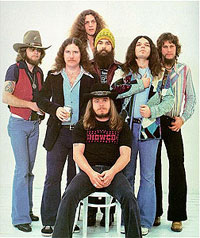 You see, there's a widespread and unfortunate historical misconception that Lynyrd Skynyrd developed and defined the southern rock genre. In fact, Skynyrd was a latter-day entry in the southern rock sweepstakes and very much an anomaly. The group's politics were hard right from the get-go; Skynyrd famously taunted Neil Young for his anti-bigot anthem "Southern Man" in their own anthemic retort, "Sweet Home Alabama." Ironically, Skynyrd's music was also far less southern-based then their brethren's; they owed a deeper debt to British rock groups like Deep Purple and the Rolling Stones than the likes of such good old boys as Bob Wills, Smokey Wood and George Jones, who appeared to inspire the others. Skynyrd never approached the musical league of the Allman, Daniels and Tucker crews, either; the group was among the weakest links in the chain of southern rockers. The group did, however, inadvertently define the genre in one important regard: Skynyrd members tended to die off like vermin in a Raid commercial (oh well, a northern man didn't need 'em around anyhow, n'yuk n'yuk!). Okay, that was mean; I just couldn't help myself. The point here is that premature death stalked the southern rock scene like a demented Catherine Zeta-Jones fan.
You see, there's a widespread and unfortunate historical misconception that Lynyrd Skynyrd developed and defined the southern rock genre. In fact, Skynyrd was a latter-day entry in the southern rock sweepstakes and very much an anomaly. The group's politics were hard right from the get-go; Skynyrd famously taunted Neil Young for his anti-bigot anthem "Southern Man" in their own anthemic retort, "Sweet Home Alabama." Ironically, Skynyrd's music was also far less southern-based then their brethren's; they owed a deeper debt to British rock groups like Deep Purple and the Rolling Stones than the likes of such good old boys as Bob Wills, Smokey Wood and George Jones, who appeared to inspire the others. Skynyrd never approached the musical league of the Allman, Daniels and Tucker crews, either; the group was among the weakest links in the chain of southern rockers. The group did, however, inadvertently define the genre in one important regard: Skynyrd members tended to die off like vermin in a Raid commercial (oh well, a northern man didn't need 'em around anyhow, n'yuk n'yuk!). Okay, that was mean; I just couldn't help myself. The point here is that premature death stalked the southern rock scene like a demented Catherine Zeta-Jones fan.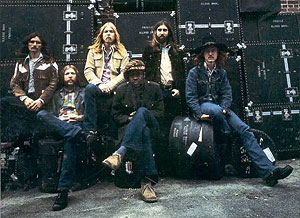 The Splendor: Macon, Georgia's ABB has served as the zygote, natal scream, undisputed heavyweight champion, dismal decline and divine resurrection of southern rock. The original, '69-formed line-up, featuring slide guitarist Duane Allman and bassist Berry Oakley, was certainly the greatest and most influential group of the post-psychedelic/pre-punk era. Allman and Dickey Betts' twin guitar harmony runs and ingenious improvisations were composed of equal measures John Coltrane modal jazz, Elmore James hellfire blues and Bob Wills tobaccy chaw yee-haw. Brother Gregg ranked with Van Morrison as the planet's maximum white R&B vocalist; the rhythm section of Oakley and drummers Jaimoe and Butch Trucks made the whole machine swing like a miniature Basie Orchestra; the Brothers were pure goddamned bliss on the hoof.
The Splendor: Macon, Georgia's ABB has served as the zygote, natal scream, undisputed heavyweight champion, dismal decline and divine resurrection of southern rock. The original, '69-formed line-up, featuring slide guitarist Duane Allman and bassist Berry Oakley, was certainly the greatest and most influential group of the post-psychedelic/pre-punk era. Allman and Dickey Betts' twin guitar harmony runs and ingenious improvisations were composed of equal measures John Coltrane modal jazz, Elmore James hellfire blues and Bob Wills tobaccy chaw yee-haw. Brother Gregg ranked with Van Morrison as the planet's maximum white R&B vocalist; the rhythm section of Oakley and drummers Jaimoe and Butch Trucks made the whole machine swing like a miniature Basie Orchestra; the Brothers were pure goddamned bliss on the hoof.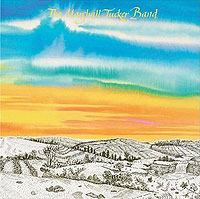 The Splendor: This odd duck faction from Spartanburg, S.C., featured thin-timbred lead vocalist Gray, modestly-gifted/musically out-of-place flautist Jerry Eubanks and a collective group homeliness to make Los Lobos look like NSYNC by comparison. That said, guitarist Toy Caldwell was sheer volcanic evil on conventional, slide and pedal steel; a gruff-toned but affecting singer when he stepped out front; a superlative songsmith who penned most of the group's poetic, deliciously country-flavored tunes. Caldwell's responsibility for MTB's success was brought clearly to light with the release of his self-titled 1993 solo album, an effort both more fun and consistent than anything produced by the mother group.
The Splendor: This odd duck faction from Spartanburg, S.C., featured thin-timbred lead vocalist Gray, modestly-gifted/musically out-of-place flautist Jerry Eubanks and a collective group homeliness to make Los Lobos look like NSYNC by comparison. That said, guitarist Toy Caldwell was sheer volcanic evil on conventional, slide and pedal steel; a gruff-toned but affecting singer when he stepped out front; a superlative songsmith who penned most of the group's poetic, deliciously country-flavored tunes. Caldwell's responsibility for MTB's success was brought clearly to light with the release of his self-titled 1993 solo album, an effort both more fun and consistent than anything produced by the mother group.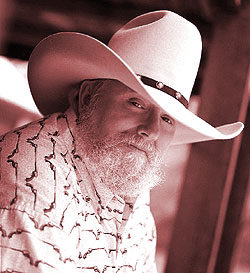 The Splendor: Originally a sideman to the stars (Dylan! Ringo! Ramblin' Jack!), intensely talented North Carolina fiddler/guitarist Daniels maintained the hillbilly-hippie stance throughout the '70s, as his band, records and concerts became ever more dazzling; Chucky fused ferociously executed blues, jazz and country with wildman showmanship, eventually helming the most shit-hot band on the planet, even outpacing the fading Allman crew by mid-decade.
The Splendor: Originally a sideman to the stars (Dylan! Ringo! Ramblin' Jack!), intensely talented North Carolina fiddler/guitarist Daniels maintained the hillbilly-hippie stance throughout the '70s, as his band, records and concerts became ever more dazzling; Chucky fused ferociously executed blues, jazz and country with wildman showmanship, eventually helming the most shit-hot band on the planet, even outpacing the fading Allman crew by mid-decade.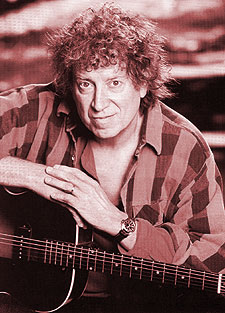 The Splendor: I recently wrote a feature on the audacious Okie known as "Pigboy Crabshaw," but no southern rock discourse would be compleat without him, so here's the Cliff's Notes version: Bishop was probably the second-finest guitarist in the southern rock canon (sorry El, but no one bests Duane), and he added tasty dollops of hard funk and a good-natured, beer-marinated sense of humor to the musical mix, peaking commercially in 1975 with the lovely but uncharacteristically country-pop flavored hit, "Fooled Around And Fell In Love."
The Splendor: I recently wrote a feature on the audacious Okie known as "Pigboy Crabshaw," but no southern rock discourse would be compleat without him, so here's the Cliff's Notes version: Bishop was probably the second-finest guitarist in the southern rock canon (sorry El, but no one bests Duane), and he added tasty dollops of hard funk and a good-natured, beer-marinated sense of humor to the musical mix, peaking commercially in 1975 with the lovely but uncharacteristically country-pop flavored hit, "Fooled Around And Fell In Love."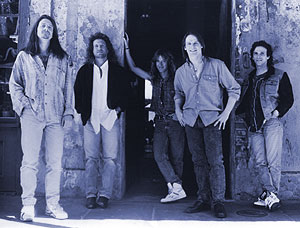 The Dixie Dregs (left) were stellar musicians whose propensity for fusion and prog-rock rendered most of their output unlistenable despite the always gold-plated chops.
The Dixie Dregs (left) were stellar musicians whose propensity for fusion and prog-rock rendered most of their output unlistenable despite the always gold-plated chops.